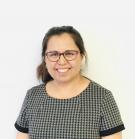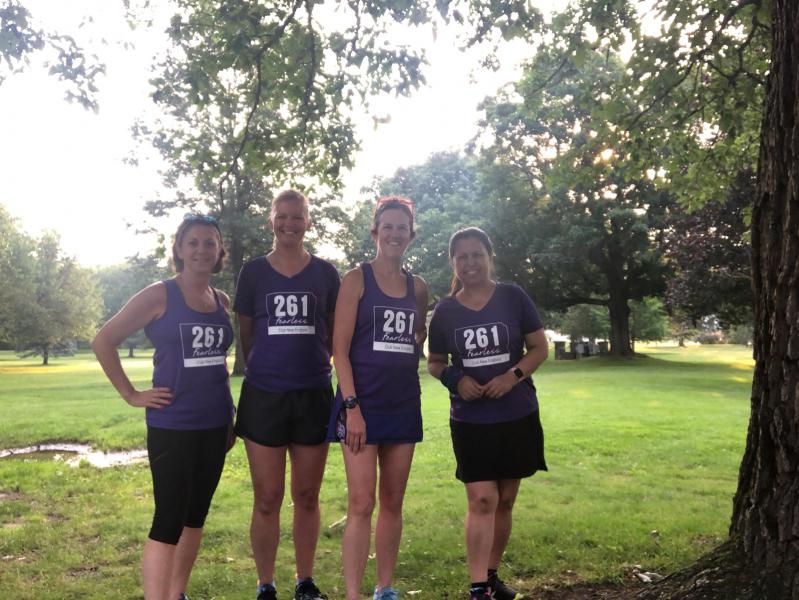
Sharifa Djurabaeva
English Teacher at Dennis-Yarmouth Regional High School and Independent Scholar
When did you first develop an interest in Slavic, East European, and Eurasian Studies?
I grew up in a remote village in Uzbekistan, speaking mainly Uzbek, and spent half of my school year in cotton fields until I graduated from high school. My limited schooling and the lack of Uzbek resources deprived me of access to scholarly journals and literature. Later, thanks to my studies at the Poltava Pedagogical Institute in Ukraine and my knowledge of Russian, I gained access to information and literature in many fields. After Uzbekistan gained its independence, I attended English language courses at the local language teaching center. Since I already had teaching experience, the principal of a boarding school, Umid, invited me to teach English as a foreign language.
While I was teaching English, I had the opportunity to participate in the U.S. Department of State Teaching Excellence Awards (TEA) program. I went to Montana State University in Bozeman for professional development as part of the TEA program, which became a turning point in my life. The trip helped me look at teaching foreign languages and educating children in totally different ways than I had ever imagined. To my surprise, teachers in the U.S. were not involved in additional work such as picking cotton with their students, participating in street cleanings, or anything else my local government has required. Observing these differences, I became interested in exploring education systems around the world, teachers’ lives in post-Soviet times, the effect of globalization on education, and many aspects of language and dialect change. In my M.A. research paper, I investigated the dialect change among three generations in the community where I grew up. Although I started exploring the teaching of reading to adult English Language Learners (ELLs) in my Ph.D. program, I later changed my focus to the constraints on teaching practice in contemporary Uzbekistan, thanks to the advice of Professor A.J. Angulo. I wanted to see how educational policies affected teachers’ professional and personal lives with the shift to a market-based economy.
What support have you received throughout your career that has allowed you to advance your scholarship?
Throughout my studies in the U.S., I received financial aid from my universities. My participation at various conferences has been supported by the University of Nebraska at Omaha, Ball State University, and the University of Massachusetts Lowell. As for ASEEES, I received a travel grant to attend the 53rd Annual ASEEES Convention in New Orleans, LA, complimentary membership through the Initiative for Diversity and Inclusion.
I also received student membership discounts from many organizations, including the Central Eurasian Studies Society (CESS), Comparative & International Education Society (CIES), and others. In addition, I received free membership from the Linguistic Society for teaching English in a public school and the International Literacy Association (ILA) for teaching in a developing country (Uzbekistan).
What is your current research project?
I am currently preparing an article based on my dissertation on the “Constraints on Teaching Practice in Contemporary Uzbekistan.” Broadly, I am exploring ways in which the shift to a market-based economy affected teachers’ lives. I am specifically looking at how Structural Adjustment Programs (SAP) suggested by international organizations affected teachers’ personal and professional circumstances. Based on interviews with teachers, I found that SAPs affected salaries, teaching approaches, and the structure of secondary education. As Uzbekistan moved into a market-based economy, it changed its secondary education system three times, putting teachers in a challenging situation. Teachers did not have appropriate resources and support during times of change. Neither teachers nor the education system could accept the changes. Teachers reported that they lost previous privileges such as prestige, respect, free housing, high salaries, and many others they enjoyed during the Soviet period. Implementing student-centered teaching approaches has been very difficult for teachers due to a lack of appropriate resources and training. On the one hand, the country moved toward free markets; on the other hand, the system of administration of schools remained highly centralized. As a result, teachers’ involvement in reforms continued to be low. In short, teachers were left in the worst of both worlds. If teachers do not have appropriate support, the quality of education suffers greatly.
How has your involvement with ASEEES helped to further your career?
I feel that I found a home with my ASEEES membership. Despite having a wide network of professionals and friends, I was in a state of isolation when I joined ASEEES in 2021 and I did not expect that I would receive extensive support. I have participated in many career development meetings, like virtual coffee hour meetings organized by the Association. At the convention, I made personal connections with various university representatives, language schools, libraries, and scholars that work in post-socialist countries, including Uzbekistan. Recently I received an announcement about the Modern Language Association (MLA) Bibliography Fellowship on the ASEEES mailing list and applied. If selected, I hope to contribute to expanding the MLA database with the literature written in Uzbek and other Central Asian languages.
Besides your professional work, what other interests and hobbies do you enjoy?

